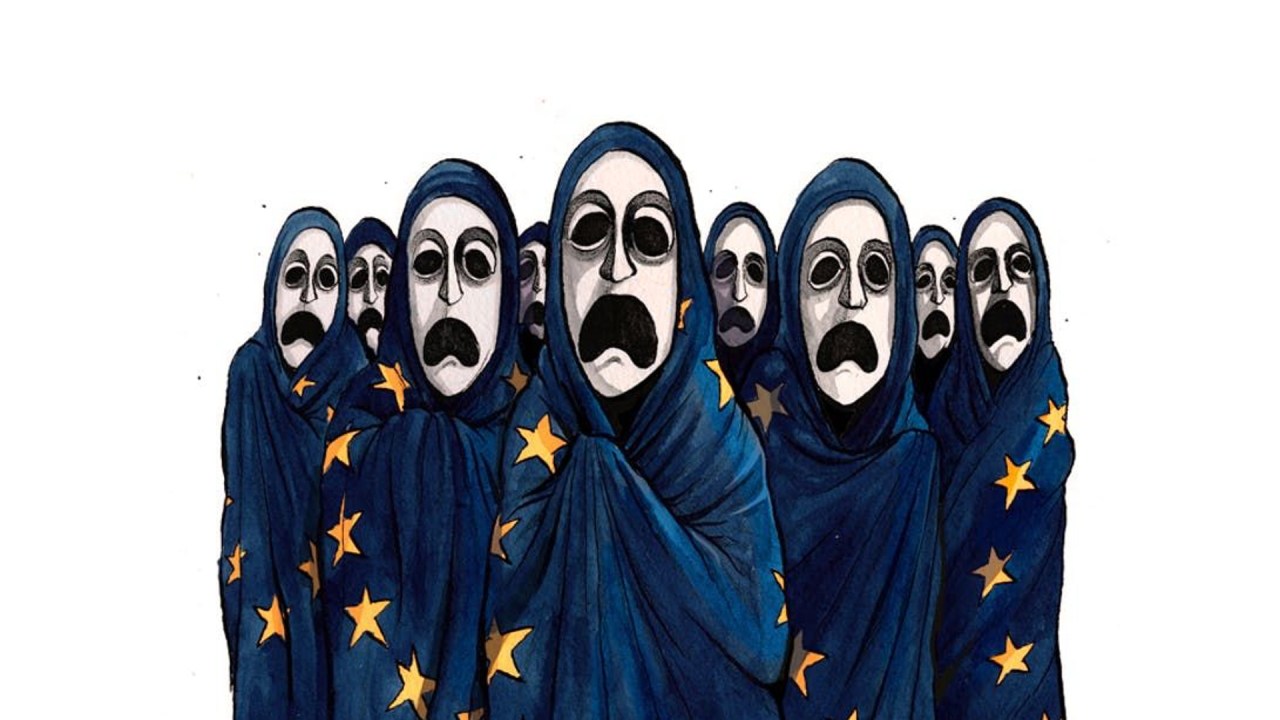Germany’s decision to reintroduce border controls in an attempt to halt mass immigration is awkward for Keir Starmer.
A fortnight ago the British Prime Minister, a friend of European free movement, visited Berlin and among the issues he discussed with German Chancellor Olaf Scholz were trade, defence and immigration.
Things are so bad that Draghi admitted to having ‘nightmares’ about Europe’s future if nothing is done to halt the ‘slow agony’ of economic decline
A few days before Starmer’s visit, three people were killed at a diversity festival by a suspected Syrian refugee. Germany’s decision to tighten its borders (initially for six months but this could be extended) is partly a reaction to that atrocity as well as the failed attack last week on the Israeli consulate in Munich.
It is also a response by Scholz to the victory last week of the Alternative für Deutschland (AfD) in Thuringia’s state election.
That success was the latest triumph in Europe for parties variously described as populist, far-right or nationalist. Take your pick.
Another description could be that they are the parties of the disillusioned, voters who see in the EU nothing but a failed project that has impoverished and endangered them.
Across the continent, mass immigration has led to a deterioration in social cohesion, to the ‘ghettoisation’ of inner cities from Malmo to Marseille to Mannheim, and the re-emergence of an anti-Semitism that Europe hoped it had eradicated three-quarters of a century ago.
This disillusionment has now spread to the elites. On Monday, Mario Draghi, the ex-president of the European Central Bank and a poster boy for the European technocrat class, published a 400-page report on competitiveness that was commissioned by the European Commission in 2023.
Shortly before Draghi published the report, the EU Commission president, Ursula von der Leyen, posted a message on social media saying that she was ‘eager’ to hear what the former Italian PM had to say.
She might not have liked what she heard. Over 400 pages, Draghi laid bare just how sclerotic and uncompetitive the EU has become this century. Things are so bad that Draghi admitted to having ‘nightmares’ about Europe’s future if nothing is done to halt what he described as the ‘slow agony’ of the continent’s economic decline.
In the press conference that accompanied the release of his report, Draghi said that only ‘unprecedented’ reform would arrest the decline. ‘For the first time since the Cold War, we must genuinely fear for our self-preservation, and the reason for a unified response has never been so compelling’, explained Draghi.
He said Europe required additional annual investment of at least €750 billion – approximately 5 per cent of the EU’s gross domestic product – if the EU is to catch up to America and prevent being overtaken by China. It is a damning indictment of how moribund the EU has become that of the world’s leading 50 tech firms only four are European.
If the 27 EU members ignore his report, Draghi predicted a grim future: ‘We will be forced to choose,’ he said. ‘We will not be able to become, at once, a leader in new technologies, a beacon of climate responsibility and an independent player on the world stage. We will not be able to finance our social model. We will have to scale back some, if not all, of our ambitions.’
In other words, Europe will continue its transformation from a first world to a third world continent.
This is the reason why so many voters have turned away from the traditional mainstream parties, be it in France, Holland, Italy or Germany. They see their living standards are on the wane, and that poverty, violence and anti-Semitism are on the rise.
As I wrote in January, as Europe’s farmers descended on Brussels to vent their anger against an EU determined to impose ruinous green dogma on their industry, Europeans have had enough of the chronic mismanagement that has been the hallmark of the EU this century. ‘In 2008 the Eurozone and the US had comparable gross domestic products (GDP) of $14.2 trillion and $14.8 trillion in today’s prices,’ I wrote. ‘In 2023 the eurozone’s GDP had edged up to just over $15 trillion, while America’s stood at $26.9 trillion’
If France was a US State its GDP per capita would rank it between Idaho and Arkansas, respectively the 48th and 49th most prosperous states. Germany would be 39th, just behind Oklahoma.
Draghi’s blueprint for change contains a series of proposals for reinvigorating the bloc. ‘Europe must become a place where innovation flourishes,’ he proclaimed.
Easier said than done. The two traditional powerhouses of Europe, Germany and France, are in desperate economic trouble with the latter crippled by huge debts. They are also the EU countries where discontent with mass immigration is the most visceral.
France’s new Prime Minister, Michel Barnier, has promised to address the issue and he might be emboldened by Germany’s decision to reintroduce border controls. Three years ago Barnier declared himself in favour of a three to five year moratorium on immigration, saying that the current flow was unsustainable and responsible for an increase in insecurity and Islamism.
The same applies in Britain, although Starmer and his government appear incapable of admitting it. Their heads remain stuck in the sand, not just about the downside of mass immigration but about the scale of the EU’s decline. Why would any sane political leader want closer ties with an organisation that is suffering a slow and agonising death?









Comments